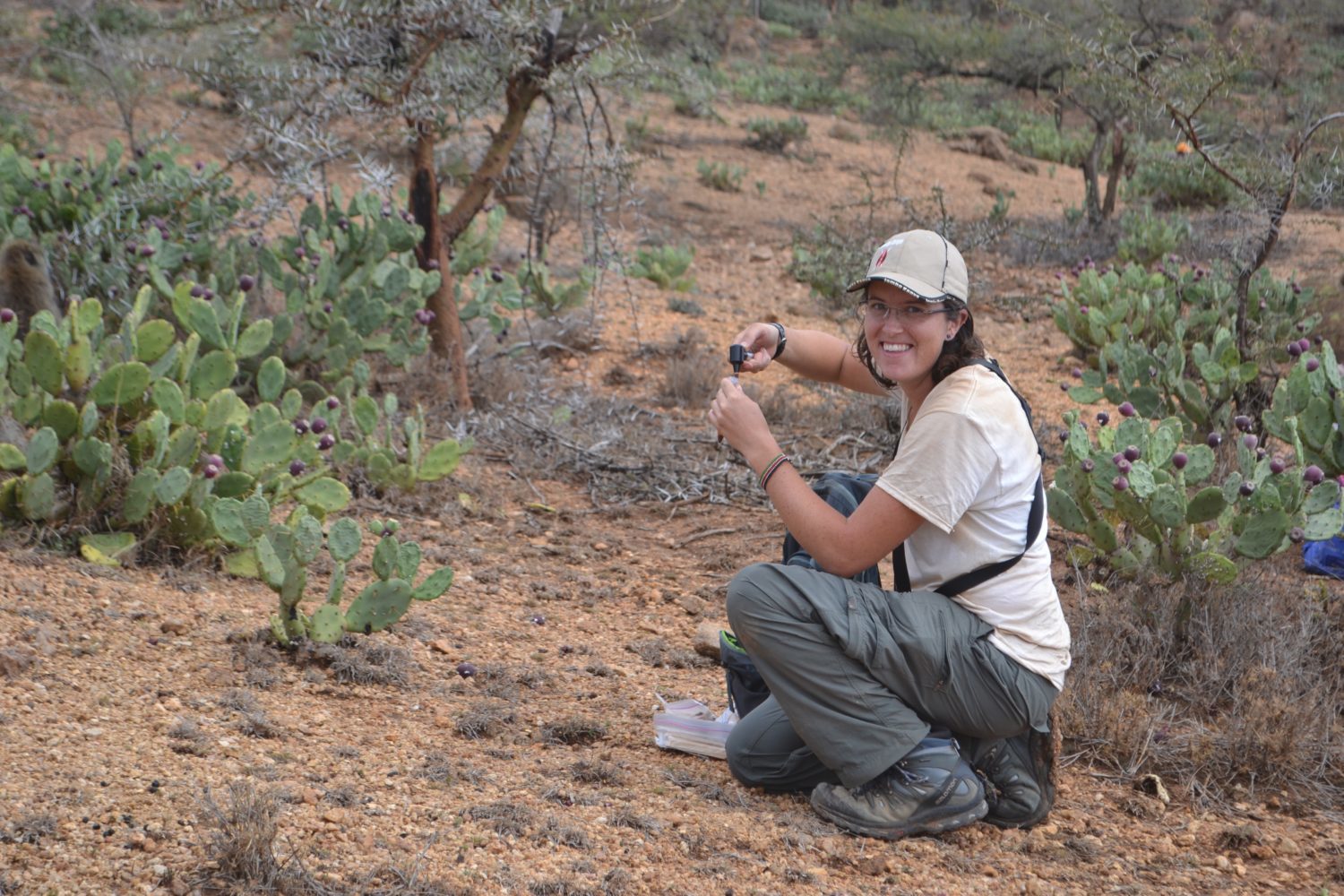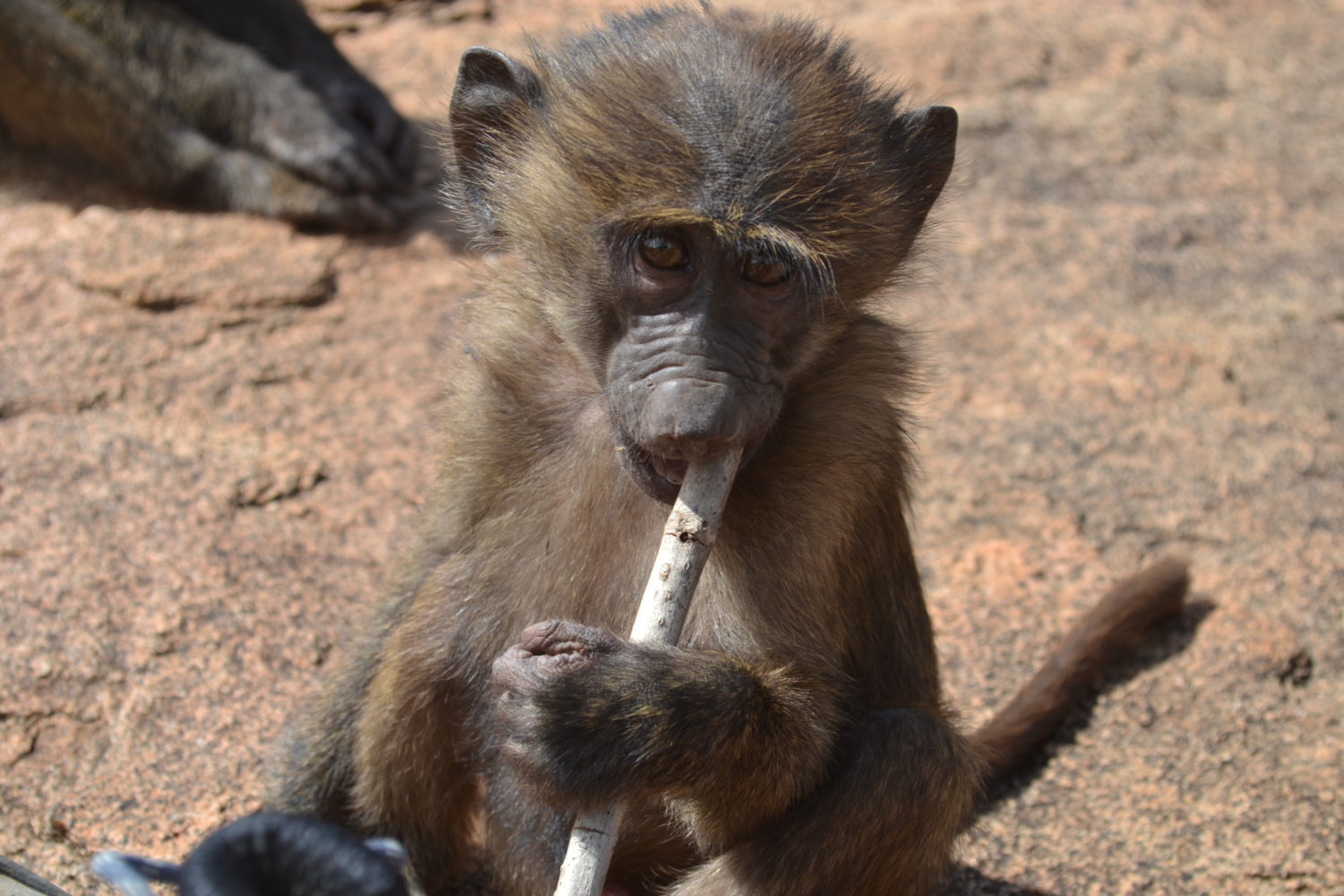Grantee Spotlight

Sam Patterson, PhD candidate from Arizona State University, was awarded a Leakey Foundation Research Grant for their project entitled “Maternal predictors of infant developmental trajectories in olive baboons.”
Early life experiences can have substantial influence on development and adult outcomes. The mother is a crucial component of the early life environment for humans and other primates. Recently, researchers have begun to examine the complexities of maternal signals, how infants use these signals to navigate developmental trade-offs, and the impact of trade-off decisions. For my dissertation research, I am taking a maternal signaling lens to examine how infants navigate development in response to the maternal environment in an ecologically diverse population of olive baboons (Papio anubis). Specifically, I will address three questions: What predicts variation in maternal signals? How do infants respond to maternal signals? How do infants navigate developmental tradeoffs?

I am currently collecting data on mother and infant baboon pairs in Laikipia, Kenya. The study site provides the opportunity to compare animals that rely heavily on invasive Opuntia stricta fruits and animals that have limited access to these fruits. For groups that range in areas where O. stricta is common, its fruit has become an important component of the baboons diet, and reduced seasonal variability in food availability.
This study will capitalize on long-term ecological and demographic data and provide detailed behavioral, physiological, and growth data. I am using photogrammetry to measure body size and growth trajectories, fecal samples to measure glucocorticoid levels in mothers and infants, and focal samples to obtain detailed information about nursing behavior, infant activity levels, and maternal responsiveness.

By considering the maternal environment and multiple dimensions of development simultaneously in an ecologically varying population, I hope that this project will provide an integrated understanding of how the maternal environment shapes maternal signals and guides infant development and provide insights into the evolution of human health, development, growth, behavior, and physiology. In the future, I hope to expand on this project by investigating consequences of tradeoff decisions. One future research goal is to monitor weaning patterns and age of reproductive maturity for the infants sampled in this study.


